Mastering Everyday Communication: Language Expressions You Need to Succeed (With Examples!)
Mastering Everyday Communication: Language Expressions You Need to Succeed (With Examples!)
Unlock Confidence in Conversations – Enroll in Our Online Group Classes Today!
In today’s fast-paced world, effective communication is your passport to success. Whether it’s navigating professional calls, chatting with friends, or overcoming connection issues, mastering the right phrases can transform your speaking skills. If you’re a B2 or C1 learner, this guide will elevate your fluency by teaching you key expressions to handle common communication scenarios.
Through real-world examples and practical usage tips, you’ll gain the confidence to express yourself clearly and professionally. But that’s not all—our online group classes are designed to help you practice these expressions with expert guidance, turning knowledge into actionable skills. Ready to level up? Let’s dive into the details!
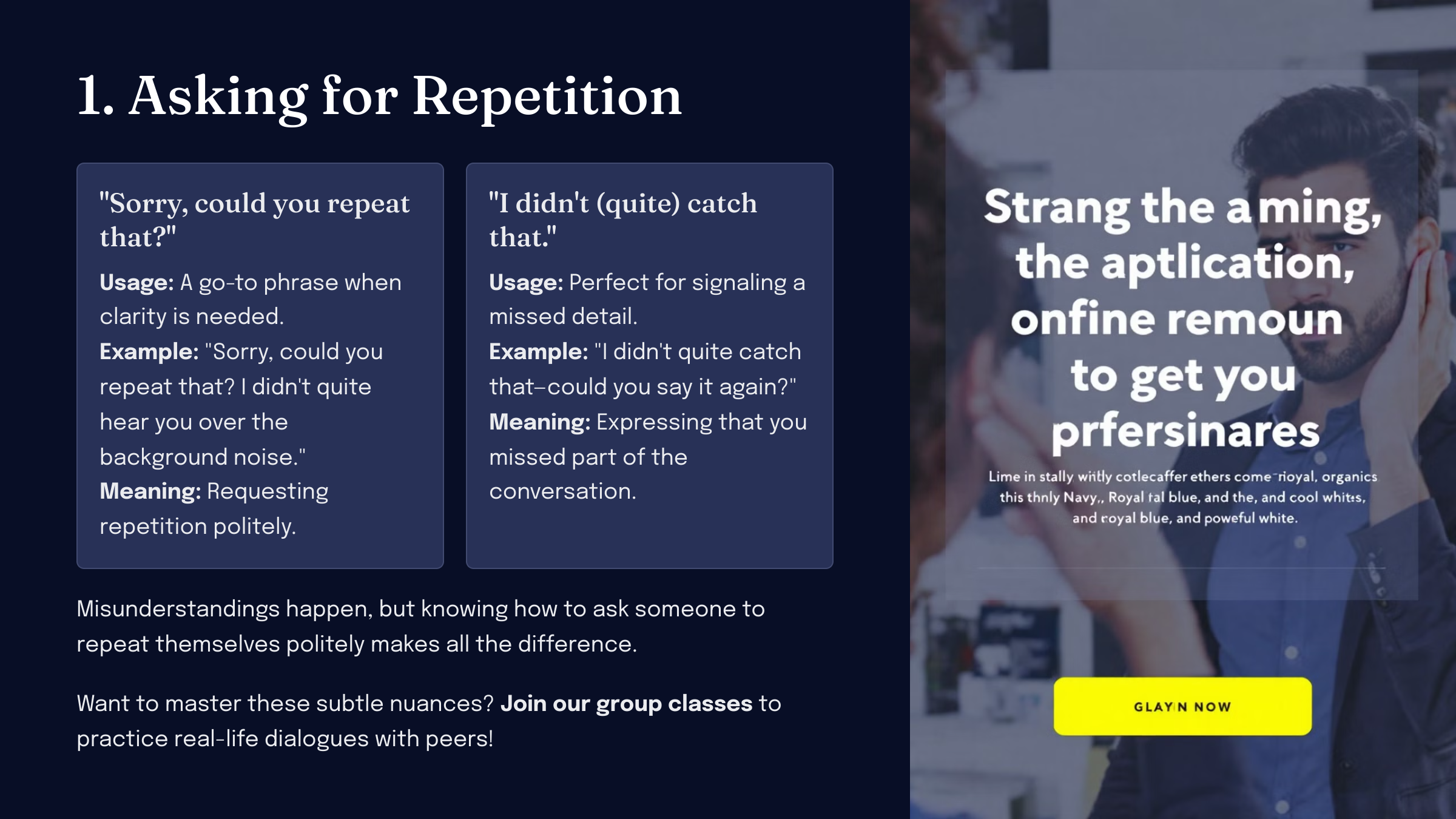
1. Asking for Repetition
Misunderstandings happen, but knowing how to ask someone to repeat themselves politely makes all the difference.
“Sorry, could you repeat that?”
- Usage: A go-to phrase when clarity is needed.
- Example: “Sorry, could you repeat that? I didn’t quite hear you over the background noise.”
- Meaning: Requesting repetition politely.
“I didn’t (quite) catch that.”
- Usage: Perfect for signaling a missed detail.
- Example: “I didn’t quite catch that—could you say it again?”
- Meaning: Expressing that you missed part of the conversation.
Want to master these subtle nuances? Join our group classes to practice real-life dialogues with peers!
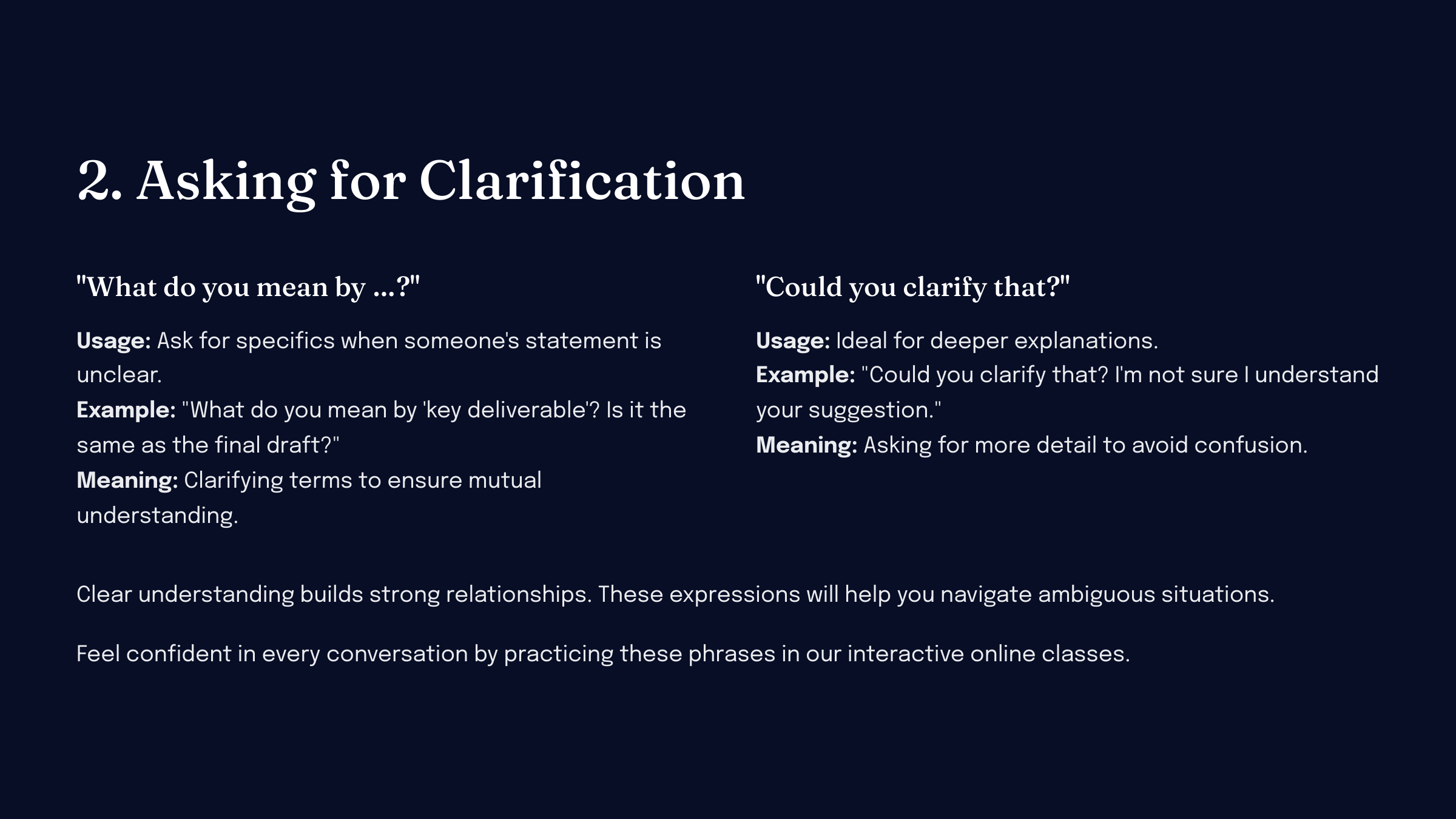
2. Asking for Clarification
Clear understanding builds strong relationships. These expressions will help you navigate ambiguous situations.
“What do you mean by …?”
- Usage: Ask for specifics when someone’s statement is unclear.
- Example: “What do you mean by ‘key deliverable’? Is it the same as the final draft?”
- Meaning: Clarifying terms to ensure mutual understanding.
“Could you clarify that?”
- Usage: Ideal for deeper explanations.
- Example: “Could you clarify that? I’m not sure I understand your suggestion.”
- Meaning: Asking for more detail to avoid confusion.
Feel confident in every conversation by practicing these phrases in our interactive online classes.
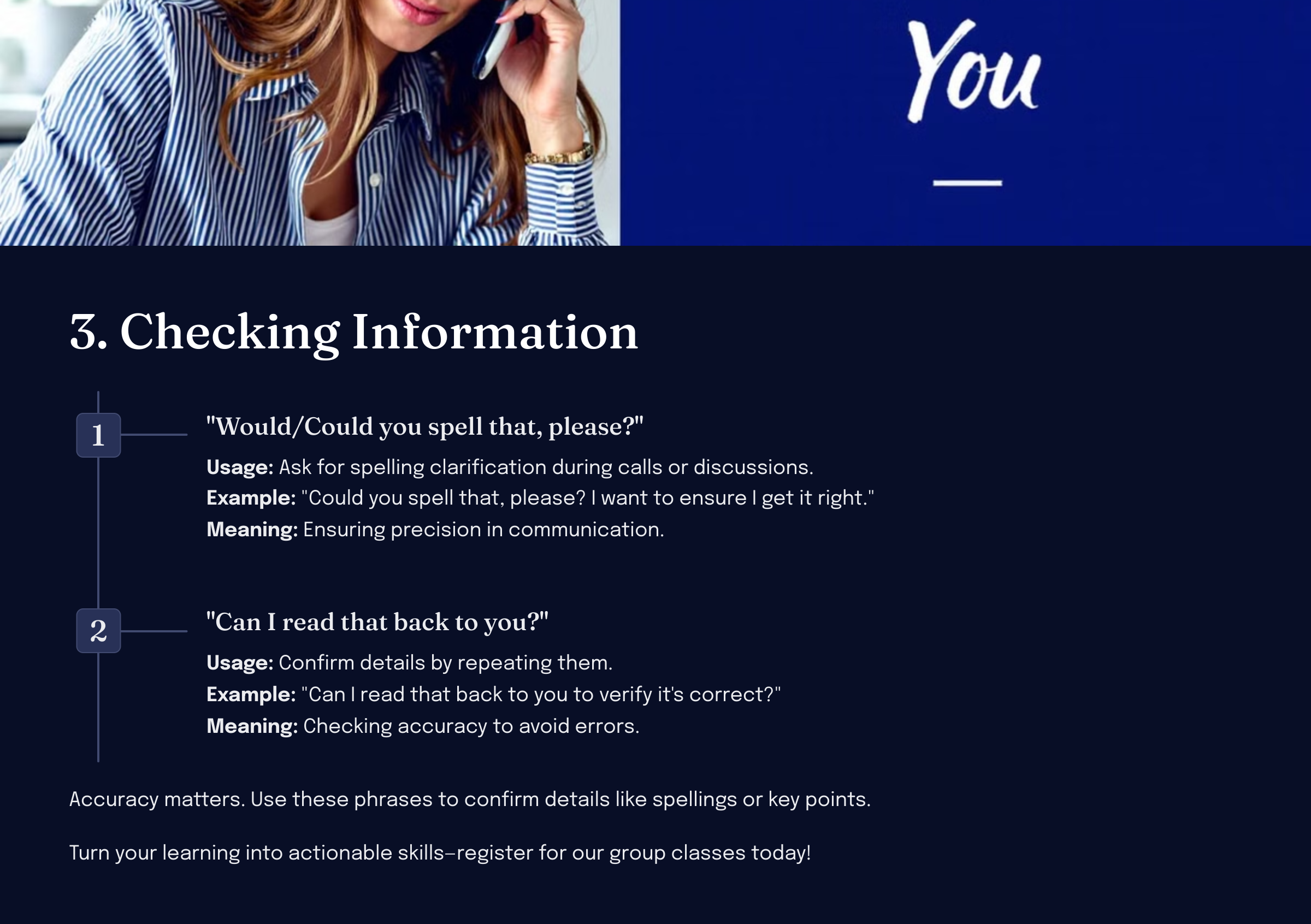
3. Checking Information
Accuracy matters. Use these phrases to confirm details like spellings or key points.
“Would/Could you spell that, please?”
- Usage: Ask for spelling clarification during calls or discussions.
- Example: “Could you spell that, please? I want to ensure I get it right.”
- Meaning: Ensuring precision in communication.
“Can I read that back to you?”
- Usage: Confirm details by repeating them.
- Example: “Can I read that back to you to verify it’s correct?”
- Meaning: Checking accuracy to avoid errors.
Turn your learning into actionable skills—register for our group classes today!
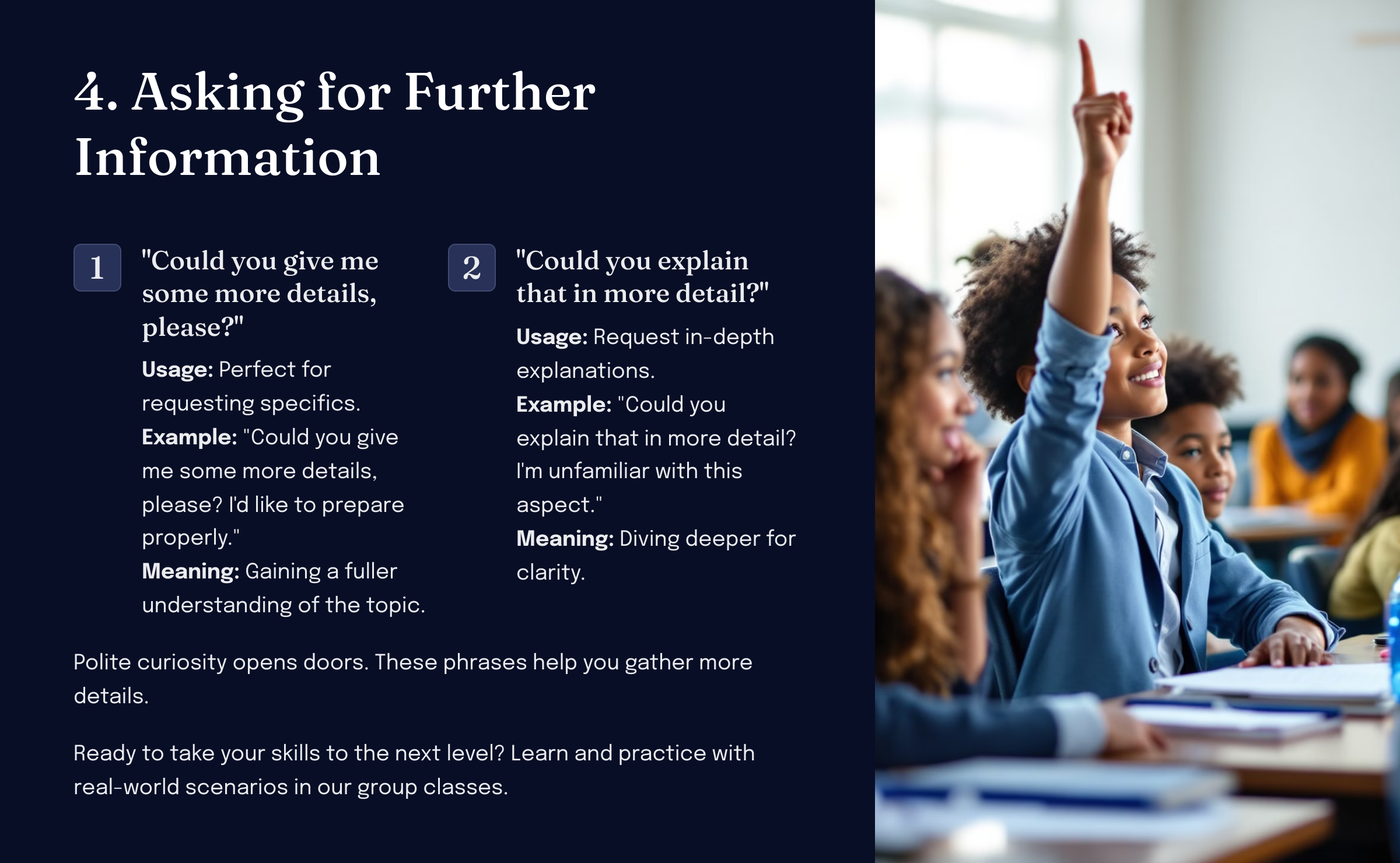
4. Asking for Further Information
Polite curiosity opens doors. These phrases help you gather more details.
“Could you give me some more details, please?”
- Usage: Perfect for requesting specifics.
- Example: “Could you give me some more details, please? I’d like to prepare properly.”
- Meaning: Gaining a fuller understanding of the topic.
“Could you explain that in more detail?”
- Usage: Request in-depth explanations.
- Example: “Could you explain that in more detail? I’m unfamiliar with this aspect.”
- Meaning: Diving deeper for clarity.
Ready to take your skills to the next level? Learn and practice with real-world scenarios in our group classes.
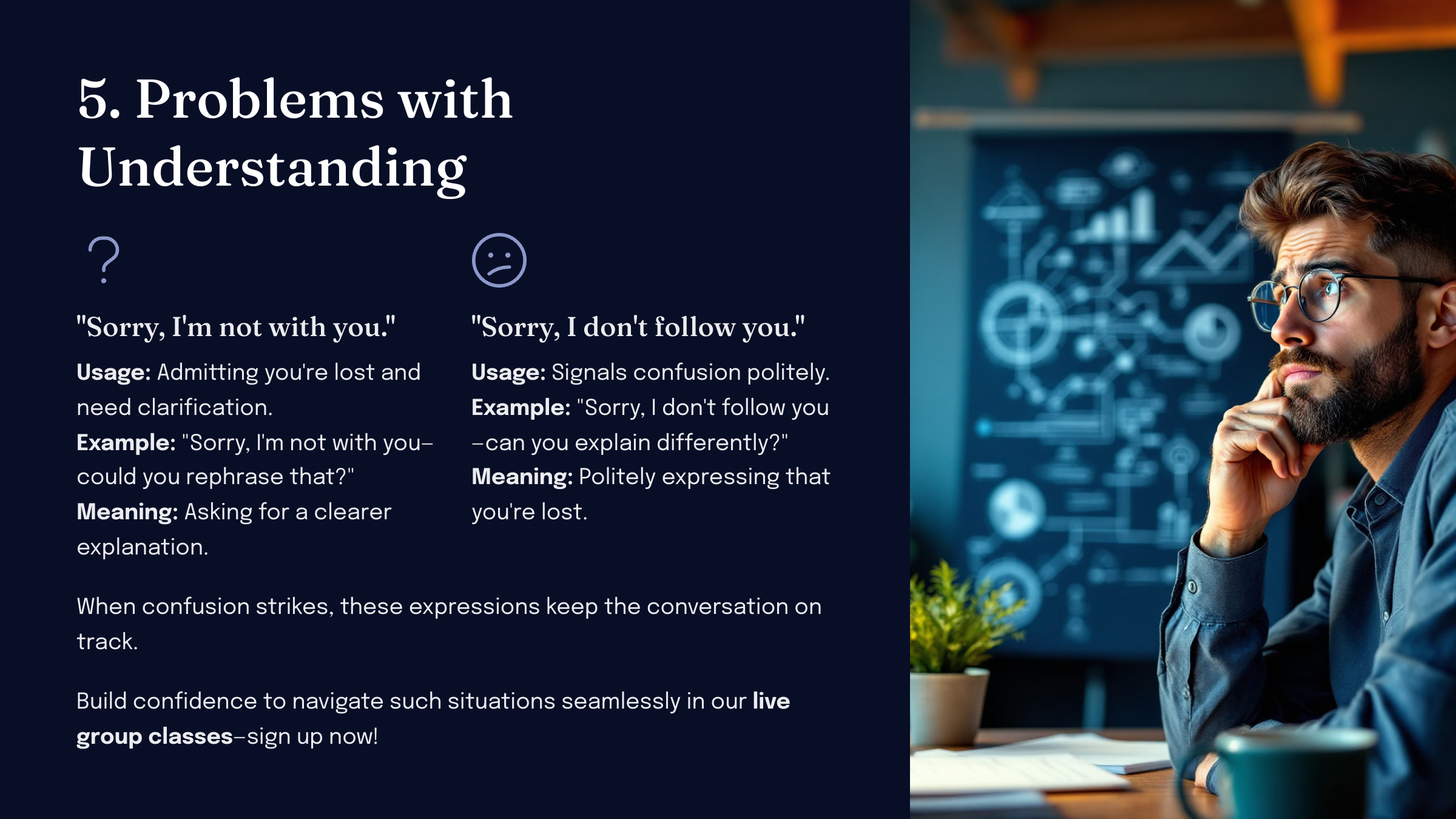
5. Problems with Understanding
When confusion strikes, these expressions keep the conversation on track.
“Sorry, I’m not with you.”
- Usage: Admitting you’re lost and need clarification.
- Example: “Sorry, I’m not with you—could you rephrase that?”
- Meaning: Asking for a clearer explanation.
“Sorry, I don’t follow you.”
- Usage: Signals confusion politely.
- Example: “Sorry, I don’t follow you—can you explain differently?”
- Meaning: Politely expressing that you’re lost.
Build confidence to navigate such situations seamlessly in our live group classes—sign up now!
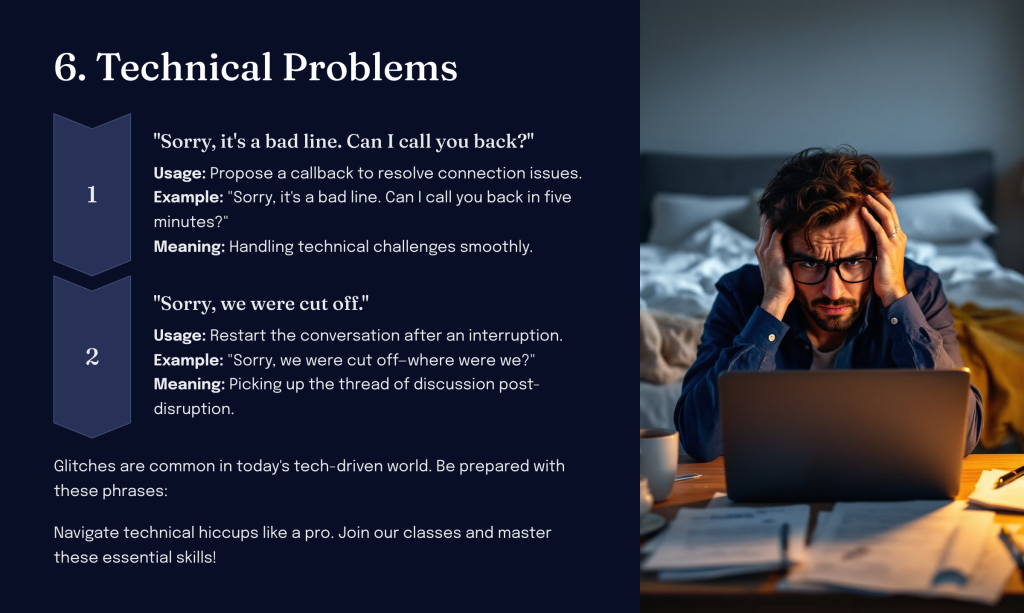
6. Technical Problems
Glitches are common in today’s tech-driven world. Be prepared with these phrases:
“Sorry, it’s a bad line. Can I call you back?”
- Usage: Propose a callback to resolve connection issues.
- Example: “Sorry, it’s a bad line. Can I call you back in five minutes?”
- Meaning: Handling technical challenges smoothly.
“Sorry, we were cut off.”
- Usage: Restart the conversation after an interruption.
- Example: “Sorry, we were cut off—where were we?”
- Meaning: Picking up the thread of discussion post-disruption.
Navigate technical hiccups like a pro. Join our classes and master these essential skills!
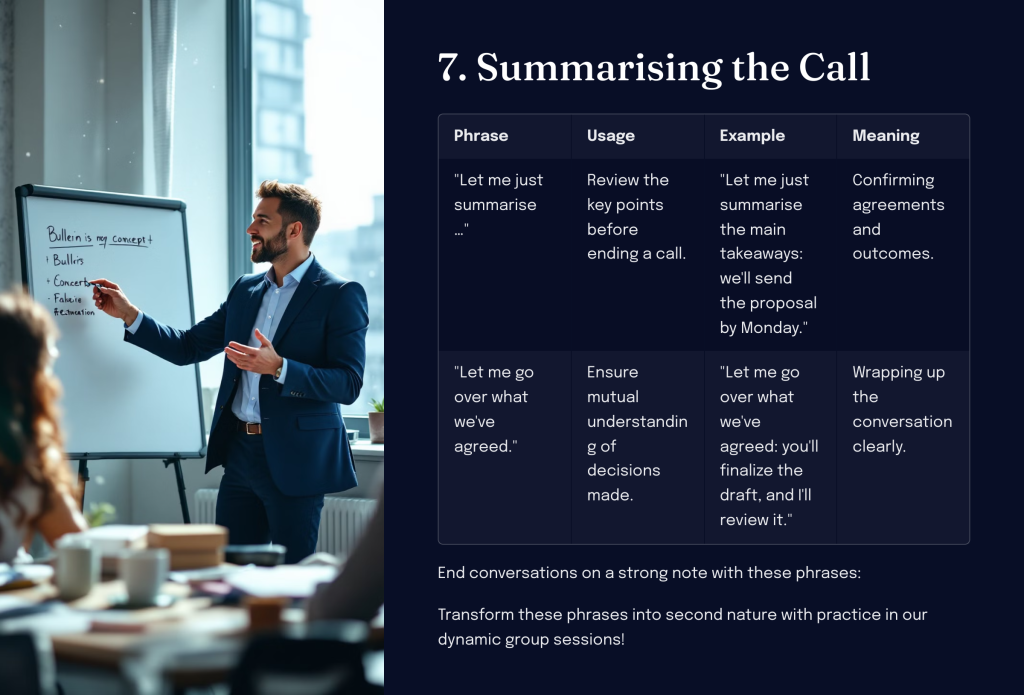
7. Summarising the Call
End conversations on a strong note with these phrases:
“Let me just summarise …”
- Usage: Review the key points before ending a call.
- Example: “Let me just summarise the main takeaways: we’ll send the proposal by Monday.”
- Meaning: Confirming agreements and outcomes.
“Let me go over what we’ve agreed.”
- Usage: Ensure mutual understanding of decisions made.
- Example: “Let me go over what we’ve agreed: you’ll finalize the draft, and I’ll review it.”
- Meaning: Wrapping up the conversation clearly.
Transform these phrases into second nature with practice in our dynamic group sessions!
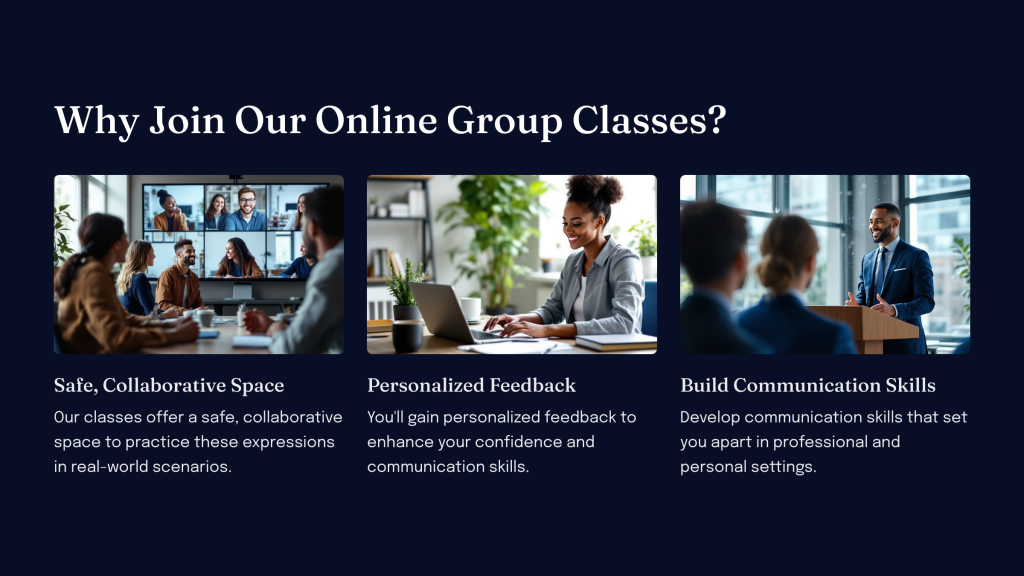
Why Join Our Online Group Classes?
Our classes offer a safe, collaborative space to practice these expressions in real-world scenarios. You’ll gain personalized feedback, enhance your confidence, and build communication skills that set you apart. Register now to secure your spot!
🚀 Don’t wait—empower your language skills today.
🌟 Join hundreds of learners who are transforming their communication abilities!
👉 Sign up for our online group classes now!
Search
Latest Posts






